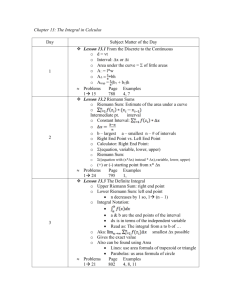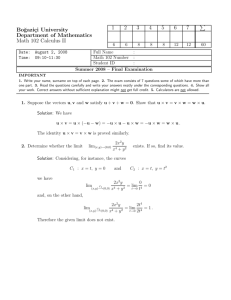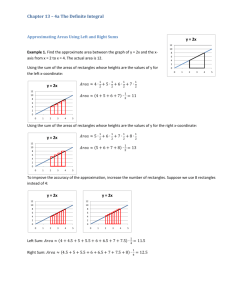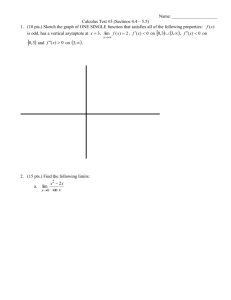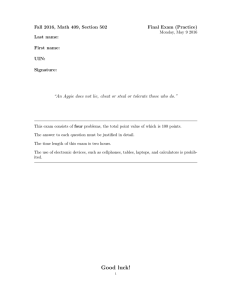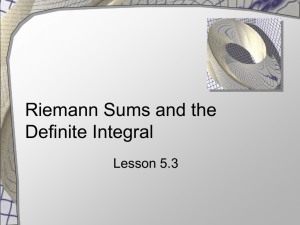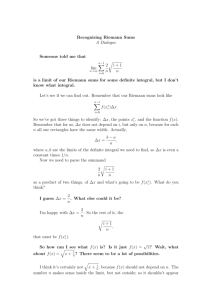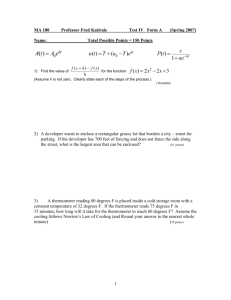Solutions of Quiz 6
advertisement
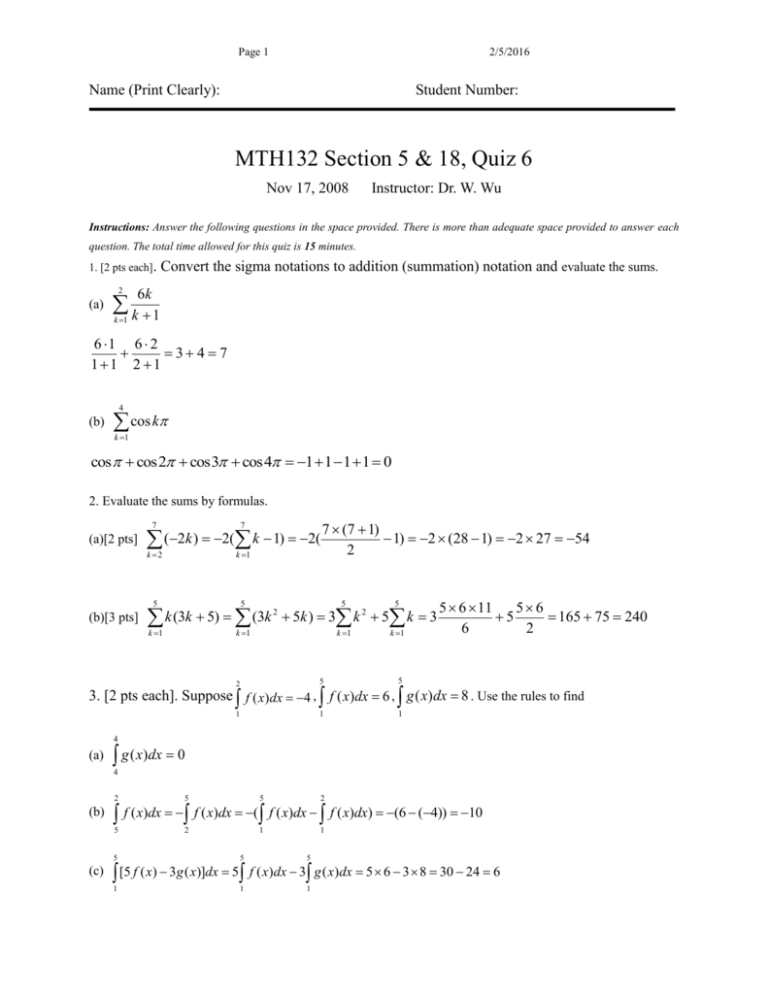
Page 1 2/5/2016 Name (Print Clearly): Student Number: MTH132 Section 5 & 18, Quiz 6 Nov 17, 2008 Instructor: Dr. W. Wu Instructions: Answer the following questions in the space provided. There is more than adequate space provided to answer each question. The total time allowed for this quiz is 15 minutes. 1. [2 pts each]. 2 (a) Convert the sigma notations to addition (summation) notation and evaluate the sums. 6k k 1 k 1 6 1 6 2 3 4 7 11 2 1 4 (b) cos k k 1 cos cos 2 cos 3 cos 4 1 1 1 1 0 2. Evaluate the sums by formulas. (a)[2 pts] (b)[3 pts] 7 (7 1) 1) 2 (28 1) 2 27 54 2 7 7 k 2 k 1 5 5 5 5 k 1 k 1 k 1 k 1 (2k ) 2( k 1) 2( k (3k 5) (3k 2 5k ) 3 k 2 5 k 3 2 5 5 1 1 1 5 6 11 5 6 5 165 75 240 6 2 3. [2 pts each]. Suppose f ( x)dx 4 , f ( x)dx 6 , g ( x) dx 8 . Use the rules to find 4 (a) g ( x)dx 0 4 2 (b) 5 (c) 5 5 2 2 1 1 f ( x)dx f ( x)dx ( f ( x)dx f ( x)dx) (6 (4)) 10 5 5 5 1 1 1 [5 f ( x) 3g ( x)]dx 5 f ( x)dx 3 g ( x)dx 5 6 3 8 30 24 6 Page 2 4. Let f ( x) 2 x 1 defined over [0,3] . Consider the Riemann sum: 2/5/2016 n f (c ) x k 1 k k . Usually, we choose equal length xk x (b a) / n . (a) [2 pts]. Partition [0,3] into 4 subintervals of equal length, then choose the right-hand endpoint of each subinterval ( ck xk a kx ) to evaluate the Riemann sum. x (b a) / n (3 0) / 4 3 / 4 ck xk 0 k (3 / 4) 3k / 4 4 f (ck ) x k 1 3 4 3k 9 4 3 4 9 45 3 45 ( 2 1 ) k 1 4 3 4 k 1 4 8 k 1 4 k 1 8 2 4 4 (b) [2 pts]. Find a formula for the Riemann sum obtained by dividing the interval into n equal subintervals. x (b a) / n (3 0) / n 3 / n ck xk 0 k (3 / n) 3k / n n f (ck ) x k 1 3 4 3k 18 n 3 n 18 n(n 1) 3 9(n 1) 9 ( 2 1 ) k 1 2 n 3 12 2 n k 1 n n k 1 n k 1 n 2 n n n (c) [1 pt]. Find a definite integral to express the limit of the Riemann sum as n approaches infinity. the limit of the Riemann sum as n approaches infinity is the definite integral of this function over [0,3] 3 (2 x 1)dx 0 (d) [bonus 2 pts]. Evaluate this definite integral. (Take the limit of this sum or use the area of a certain region) n lim n 9 f (c ) x lim (12 n ) 12 0 12 k 1 k n
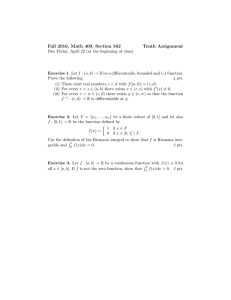
![Student number Name [SURNAME(S), Givenname(s)] MATH 101, Section 212 (CSP)](http://s2.studylib.net/store/data/011174919_1-e6b3951273085352d616063de88862be-300x300.png)

